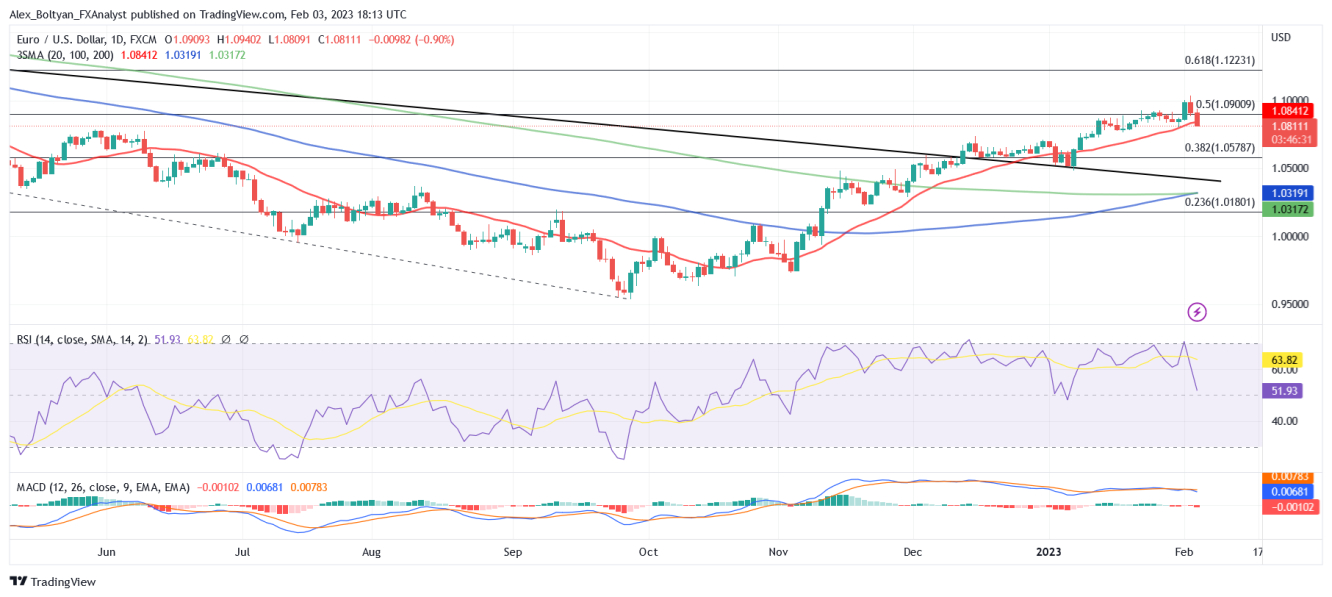The U.S. dollar bounced sharply on Friday, reversing weekly losses against the euro as a stunning nonfarm payrolls report boosted expectations the Fed would stick to its hawkish stance.
U.S. yields, and the greenback, jumped after the Bureau of Labor Statistics reported the U.S. economy added 517,000 jobs in January, beating by far the market consensus of 185,000, almost doubling December’s 260,000 gain.
Other details of the nonfarm payrolls report showed the unemployment rate edged down to 3.4% from 3.5% the previous month, while annual wage inflation, as measured by the Average Hourly Earnings, eased to 4.4% in January.
At the time of writing, the EUR/USD is trading at the 1.0810, 0.9% below its opening price, extending its pullback from the post-Fed 1.1032 high. The pair is also poised to post a weekly loss of 0.5%.
Following the solid job figures, U.S. Treasury yields soared across the curve, propelling the dollar’s rally. The 2, 5 and 10-year bond rates rose around 4% each, to 4.27%, 3.64% and 3.51%, respectively. In addition, markets are fully pricing in a 25 bps hike in March, while at the beginning of the session, there were some bets of the Fed not hiking.
Earlier in the session, S&P Global data from the Eurozone showed that January Global Composite PMI rose to 50.3 versus the 50.2 expected, while the Services PMI jumped to 50.8, also beating the consensus of 50.7.
From a technical standpoint, the EUR/USD maintains a positive outlook on the weekly chart. However, the shorter-term perspective has deteriorated after last sessions’ pullback. The price has slid below the 20-day SMA but holds above the 100- and the 200-day SMAs, which are about to complete a bullish crossover. Furthermore, indicators show increasing bearish interest as the RSI plummeted near its midline while the MACD prints higher red bars.
A close below the 20-day SMA could add some pressure over the pair, exposing following support areas at 1.0800 and 1.0770. On the other hand, the next resistance levels line up at 1.0900, followed by 1.1035 and 1.1085.


